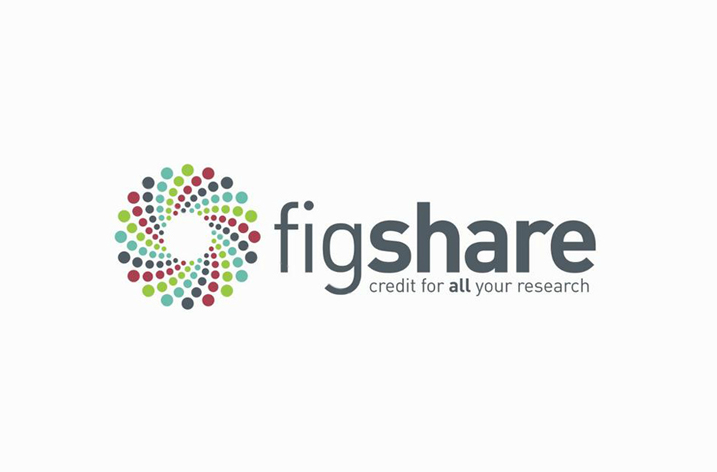
Open data has become more embedded in the research community – 82% of survey respondents are aware of open data sets and more researchers are curating their data for sharing
London, UK and New York, USA: Today Figshare, an online digital repository for academic research, has launched its annual report, The State of Open Data 2017, to coincide with global celebrations around Open Access Week. This report is the second in the series and includes survey results and a collection of articles from global industry experts, as well as a foreword from Jean-Claude Burgelman, Head of Unit Open Data Policies and Science Cloud at the European Commission.
In order to effectively examine attitudes and experiences of researchers working with open data – sharing it, reusing it, redistributing it – in 2016 Figshare released their first report collating findings of a survey undertaken in partnership with Springer Nature. The survey results, outlined in an article ‘Open Season for Open Data’, showed that open data was already a reality, and while researchers were unsure and lacked confidence on some specifics, there were indications the future would become more open. One year on, these survey results have been used to track the evolution of how researchers deal with data and the trends are positive with strong signals that open data is becoming more embedded.
For this year’s survey, partnering with both Springer Nature and Wiley, there was a marked growth in respondents from just over 2000 to almost 2300. Key findings include:
- • Respondents have become more aware of open data sets (82% up from 73%) than in 2016
- • Age does not appear to be a major factor in this trend
- • 74% of researchers are curating their data for sharing
- • Willingness of researchers to reuse open data sets in their own research has grown, a 10% increase to 80%, with the increase replicated across age groups
- • Researchers who routinely share their data has also grown since 2016, although by a smaller amount, from 57% to 60%
- • The proportion of researchers who have never made a data set openly available has reduced in the last year
- • Looking deeper we can see further promise for the future of open data, as 70% of these researchers are now willing to reuse open data sets in their own research (up from 65%)
We have seen some interesting findings in the survey from Asia: the awareness of open data has increased by 15%, compared to 9% globally, and sharing open datasets has increased by 10%, compared to 3% globally. Moreover, achieving impact is a much bigger motivator for Asian researchers when they make their data open for sharing, for example, compared to North American researchers for whom public benefit is a bigger motivator. These outcomes are just one of a number of interesting geographical differences which are revealed in this year’s survey.
Mark Hahnel, CEO and Founder, Figshare said:
“The global commonalities in incentivisation and awareness of open academic research data, go to show the increasing momentum around open research becoming the standard. The report continues to highlight the need for funders and institutions to keep educating their academics. This is a hugely Digital Science, The Campus, 4 Crinan Street, London, N1 9XW, UK digital-science.com Contact: Laura Wheeler l.wheeler@digital-science.com
encouraging report for continuing to drive societal good in a way that aligns with technological advances helping us move academia further, faster.”
Grace Baynes, Director of Data and New Product Development, Open Research at Springer Nature said:
“This report shows a tangible shift in researchers’ attitudes and data sharing practices in just a single year, and gives a sense that momentum is building. But there is more to be done. Good data sharing enables researchers to be up to 50% more productive, wastes less time in duplicating work, advances discovery and delivers real return on investment from public funding. The case for accelerated change is increasingly inarguable. To make open data and good research data management the new normal needs a concerted effort, and collaboration now from governments, funders, research institutions, publishers and researchers themselves. At Springer Nature, we look forward to playing our part.”
The report contributors include:
Foreword Jean-Claude Burgelman, European Commission
Outputs Sharing: A Perspective from the Wellcome Trust : Robert Kiley & David Carr, Wellcome Trust
Open Data – Sooner or Later? Updated Findings from Surveys of Researchers : Jon Treadway & Briony Fane, Digital Science
2 Out of 3 ‘Aint Bad. When Will Open Research Education Make it Through to Those Generating the Research? Mark Hahnel, Figshare
What Open Data Means for an Institution – The University of Cape Town: Dale Peters, University of Cape Town
Collaboration and Concerted Action are Key to Making Open Data a Reality: Grace Baynes, Springer Nature
For the first time, an interactive visualization of the survey data can be found on Figshare. Download the report on Figshare now and you can share online using #stateofopendata.
Download Here: https://figshare.com/articles/The_State_of_Open_Data_Report_2017/5481187/1























